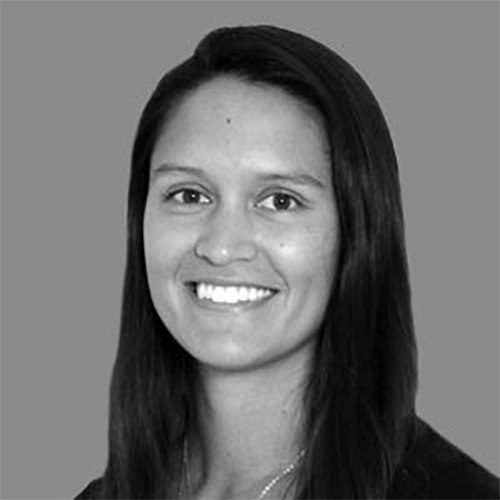The missing link to successful rehab and return to sport
While much is understood about the importance of physical therapy when rehabilitating from an injury and returning to sport, there is less focus on the role of mental performance. Overall, psychological readiness has been undervalued and underassessed when determining if an athlete is ready to return to sport at their previous competitive level.
August 1, 2023 | Ashley Moriarty, PT, DPT, OCS

While much is understood about the importance of physical therapy when rehabilitating from an injury and returning to sport, there is less focus on the role of mental performance. Overall, psychological readiness has been undervalued and underassessed when determining if an athlete is ready to return to sport at their previous competitive level.
While research continues to emerge regarding the importance of incorporating mental performance to all injuries, there is a strong body of evidence related specifically to anterior cruciate ligament reconstruction (ACLR). It has been suggested that the single most important factor influencing return to pre-injury sport participation is psychological readiness, and current data suggests that only 50% of people who have undergone ACLR return to their previous level of activity. Of those that do return, up to 30% sustain a second injury within two years.
In order to return to sport after ACLR, there are a battery of physical tests that are usually administered to assess strength, power, and range of motion, among other things. However, it is speculated that the primary reason that half of injured athletes fail to return to sport is because of psychological barriers, not physical barriers, yet this area of recovery is overlooked. Despite a strong link between fear of reinjury and failure to return to sport, many rehab programs fail to include a formal assessment of psychological readiness, namely the Tampa Scale of Kinesiophobia (TSK-11). The TSK-11 assesses pain related fear of movement and fear of reinjury, using a grading scale of 11-44, with higher scores being associated with more fear, and a score of greater than 17 falling into a “high fear” category. In one study by Paterno et al, those who reported high fear were four times more likely to report lower levels of activity, indicating they may not return to their sport. Additionally, those who did return to cutting and pivoting sports with high fear were at an increased risk of reinjury within the first 2 years. successful rehab and returning to full participation in sport.
Psychological readiness should be an integral part of an athlete’s rehab process. Objectively, assessing fear of movement and fear of reinjury should happen in a similar vein as assessment of strength and range of motion. It should be addressed early and continuously in the rehab process, as the athlete progresses toward running, cutting, pivoting, and return to contact. Mental performance consultants should be involved in every athlete’s return to sport journey to address fear of reinjury, improve confidence in their movement abilities, and help implement strategies to cope with possible setbacks. Concerns about return to sport should be addressed well before the time comes to make a decision so we can eliminate or minimize fear before return to the field or court.
Despite the growing body of literature that emphasizes the importance of mental performance training for injured athletes, there are large gaps in its implementation. This is the missing link between traditional rehab and return to sport at pre-injury levels, which is the ultimate goal for these athletes.
Citations:
Paterno MV, Flynn K, Thomas S, Schmitt LC. Self-Reported Fear Predicts Functional Performance and Second ACL Injury After ACL Reconstruction and Return to Sport: A Pilot Study. Sports Health. 2018 May/Jun;10(3):228-233. doi: 10.1177/1941738117745806. Epub 2017 Dec 22. PMID: 29272209; PMCID: PMC5958451.
Baez SE, Hoch MC, Hoch JM. Psychological factors are associated with return to pre-injury levels of sport and physical activity after ACL reconstruction. Knee Surg Sports Traumatol Arthrosc. 2020 Feb;28(2):495-501. doi: 10.1007/s00167-019-05696-9. Epub 2019 Sep 5. PMID: 31486916.

Ashley Moriarty
Ashley Moriarty, PT, DPT, OCS, is a board certified orthopedic clinical specialist who is certified in dry needling and pre- and post-natal fitness.
